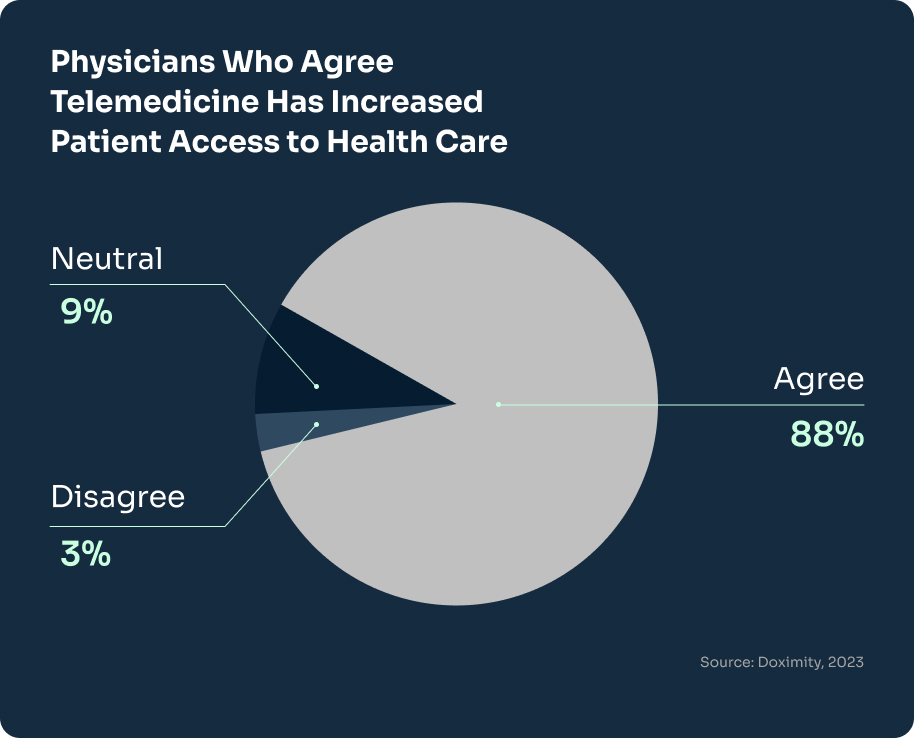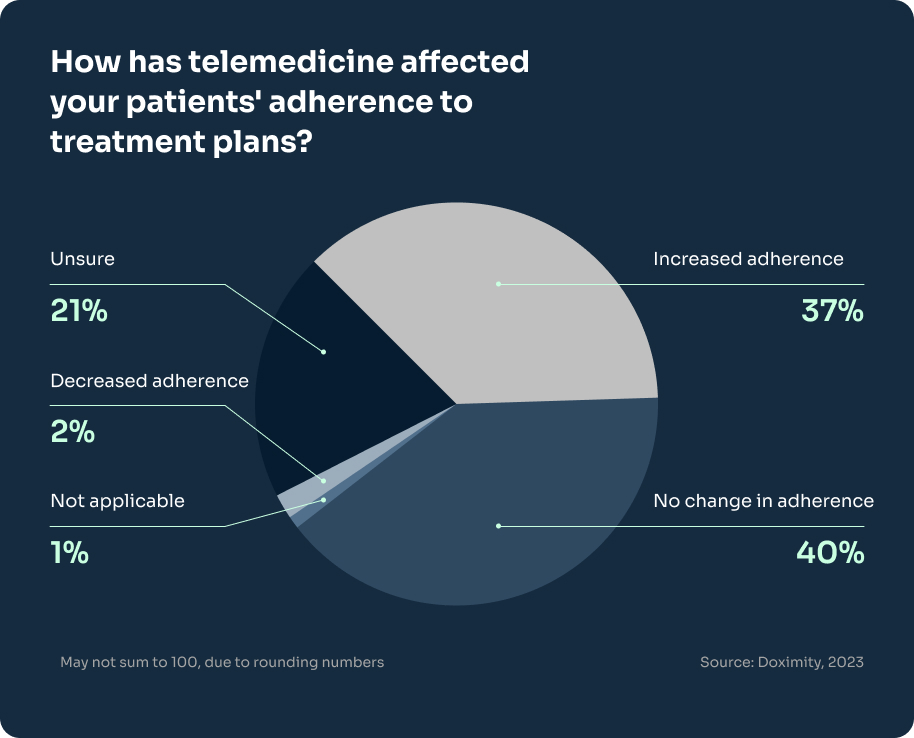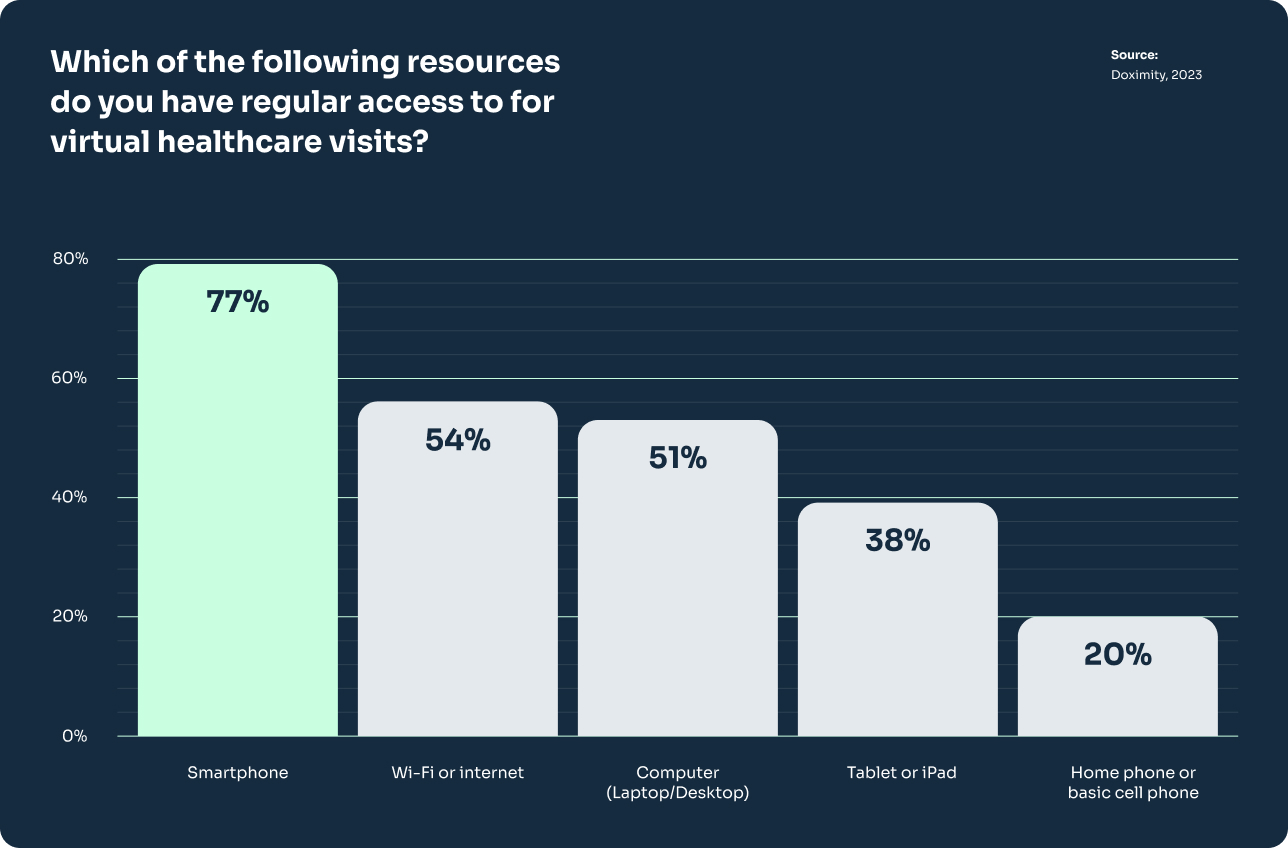The healthcare landscape is undergoing a seismic shift, with telemedicine playing a pivotal role. Alongside this, point-of-care advertising is emerging as a powerful tool to deliver timely and relevant information to healthcare professionals during their interactions with patients. This form of advertising is becoming especially crucial in the age of virtual care, ensuring that physicians have the right information at their fingertips.
The Versatility of Virtual Care and Point-of-Care Advertising
Virtual care is revolutionizing healthcare delivery, making it more accessible and convenient. With 92% of physicians incorporating routine follow-up visits into their virtual care offerings and 57% using the platform to discuss lab results and treatment options, the scope of telemedicine is vast. Point-of-care advertising complements this by ensuring that healthcare professionals receive targeted and relevant information during their virtual consultations, especially as traditional in-person interactions with pharmaceutical representatives become less common.
Routine and Beyond
Beyond routine visits, 70% of oncologists leverage virtual care for discussions on lab results and treatment options. Moreover, virtual care has proven effective for managing chronic conditions, allowing patients to receive remote monitoring and education. Point-of-care advertising plays a role here by providing physicians with the latest information on treatments, medications, and research, ensuring they can make informed decisions.
Time Management and Burnout
The COVID-19 pandemic may have been the initial catalyst for telemedicine’s surge, but its continued adoption can be attributed to its inherent benefits. Two-thirds of physicians have reported benefits like improved work-life balance, increased productivity, and enhanced schedule management from telemedicine. The integration of point-of-care advertising further enhances this by reducing the time physicians spend searching for information, allowing them to focus more on patient care.
Patient Adherence and Access
Virtual care isn’t just benefiting physicians. Patients, too, are reaping its rewards. A commendable 77% of physicians observed either equivalent or improved patient adherence to treatment plans via telemedicine. Furthermore, 88% of physicians believe telemedicine has democratized healthcare, breaking down barriers and making it more accessible to all, especially those who previously faced challenges accessing care. Point-of-care advertising can play a role in this by ensuring that physicians have the latest information on medications, potential side effects, and best practices, which they can then relay to their patients.
Telemedicine’s Growing Footprint and Point-of-Care Advertising
In 2022, telemedicine reached a significant milestone, with 80% overall adoption. But it’s not just about the numbers. It’s also about the frequency. Nearly 60% of patients have had at least three virtual visits in the past year, and this trend shows no signs of slowing down. That’s good news for patients and providers alike. The more familiar patients become with virtual care, the more willing they are to embrace it as an integral part of their healthcare journey.
Patient Preferences and Modalities
Over a quarter of patients opted for virtual visits when in-person appointments weren’t necessary. With 70% of patients suggesting they’d consult a doctor virtually in non-emergency situations, point-of-care advertising ensures that, during these virtual consultations, physicians have access to the latest information.
As for the mode of communication, video consultations are leading the way, closely followed by audio-only phone calls, catering to diverse patient needs and preferences. This not only highlights the versatility of virtual care but also its ability to cater to a wide range of patient demographics.
Device Accessibility and Preferences
The majority of patients, 77% to be precise, have regular access to a smartphone, making it the go-to device for virtual visits. However, with only 54% having regular access to Wi-Fi, the need for adaptable telemedicine solutions has never been more evident. Interestingly, 60% of patients strongly preferred mobile devices for their telemedicine visits, highlighting the importance of mobile-first strategies in telehealth. When creating a telemedicine solution, accessibility and device preferences must be considered to ensure its effectiveness.
The Future of Virtual Care
The trajectory of telemedicine looks promising. Almost 67% of patients emphasized the importance of virtual care options, with this number rising to 72% among those who had three or more telemedicine visits. Most tellingly, 83% of these patients expect to either maintain or increase their telemedicine usage in the future. This underlines the growing demand for virtual care, with patients recognizing its value and convenience. As technology continues to evolve, telemedicine will only become more refined and accessible, further cementing its position as an essential tool in healthcare delivery.
Embrace the Future of Healthcare With Levo Health
Elevate your healthcare practice’s marketing strategies by partnering with Levo Health. As a full-service healthcare marketing agency, we bring a combination of innovative solutions, industry expertise, and a patient-focused approach to help you reach your goals. Whether you want to expand your telehealth services, enhance patient engagement, improve brand visibility, or integrate point-of-care advertising, we are here to help.
Contact Levo Health today to get started.



















